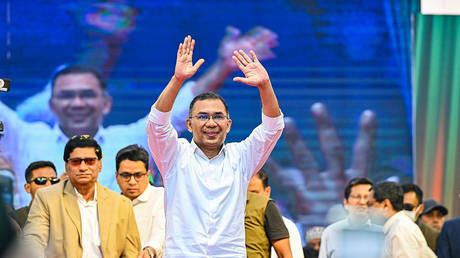
Following the mass anti-police protests sweeping the world, IBM’s CEO has said the company will stop developing and researching facial recognition tech and reconsider selling it to law enforcement.
In a letter to Congress, IBM CEO Arvind Krishna stated that the company will no longer offer general purpose facial recognition analysis software. The company also told the Verge that it would no longer develop nor research such technology.
“IBM firmly opposes and will not condone uses of any [facial recognition]technology, including facial recognition technology offered by other vendors, for mass surveillance, racial profiling, violations of basic human rights and freedoms, or any purpose which is not consistent with our values and principles of trust and transparency,” Krishna said in the letter. “We believe now is the time to begin a national dialogue on whether and how facial recognition technology should be employed by domestic law enforcement agencies.”
Krishna addressed the letter to Senators Cory Booker (D-NJ) and Kamala Harris (D-CA) and Representatives Karen Bass (D-CA), Hakeem Jeffries (D-NY), and Jerrold Nadler (D-NY). The letter also called for police reform, saying that “new federal rules should hold police more accountable for misconduct.”
In recent years, facial recognition technology has come on in leaps and bounds thanks to advancements in machine learning and artificial intelligence. However, as with most new technologies, it is not without its hiccups, and there are discrepancies in how facial recognition sees people of different races, ages and ethnicity.
On Tuesday, Microsoft’s AI journalists, used to select imagery for articles on MSN, mistook Little Mix’s Jade Thirlwall for her bandmate Leigh-Anne Pinnock, leading to accusations of racism.
Although not foolproof, this hasn’t meant that companies have not been producing and selling the technology to police departments.
Amazon, for example, was criticized for pitching its facial recognition tech to law enforcement in 2018, with its Rekognition system described as “primed for abuse in the hands of governments” by the American Civil Liberties Union. The ACLU also found that Rekognition incorrectly matched 28 members of Congress to faces picked from 25,000 public mugshots.
In the UK, a government-funded AI program aims to make unconstrained face recognition “ubiquitous by 2020.” The research program, Face Matching for Automatic Identity Retrieval, Recognition, Verification and Management (FACER2VM) will use machine learning to overcome previous limitations that have held the technology back.
Like this story? Share it with a friend!




